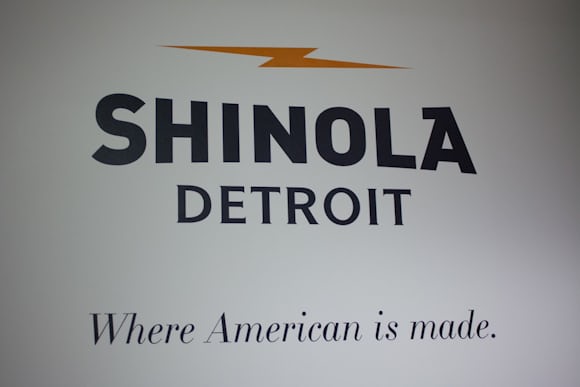An Open Letter From Shinola Founder Tom Kartsotis In Response To The FTC’s Most Recent Action
Editor’s Note: This morning, we reported that the Federal Trade Commission published a series of guidelines for Detroit-based Shinola, which is the producer of several products – including watches, bicycles, and leather goods – described as “Built in America”. The FTC suggested a multi-point plan to change advertising and other marketing materials to more specifically describe what it is they do at Shinola – you can read that story here. Among other things, moving ahead Shinola will continue to use “Built In Detroit” on watch cases, but will add the qualification “with Swiss and Imported Parts.” Not soon after we published this story, we were contacted by Shinola with a response to the FTC’s new guidelines, from founder Tom Kartsotis.
An Open Response From Tom Kartsotis
While we are happy to have this episode behind us, we are troubled by some of the things that we experienced in the process. Shinola has always tried to be a Company that brings jobs to America by training individuals here to handle as much of the manufacturing process as possible, while at the same time, attempting to remain competitive on a global scale. We believe that our mission is, and our marketing implies, that we are a job creation vehicle and not a “Made in America” play.

We have always believed that “Built in Detroit” most accurately describes the watches (and jobs) that are being created in Detroit and will continue to mark our watches as “Built in Detroit.” (Shinola has indicated to HODINKEE that the phrase will be additionally qualified with “with Swiss and imported parts”.) While the FTC did show us some flaws in our communication, we believe that we have genuinely tried to be completely transparent as to the origin (and mission) of our products from the outset. We are thankful to the FTC for helping us identify some areas of improvement within some of our communication, which we began adopting over the last year.

What is left unsaid here is that the regulations governing the “Made in the USA” standards create somewhat subjective policies and standards that hinder the ability of any given Company to communicate effectively to the consumer the overall effort and scope of what they are manufacturing in America in order to separate themselves from the majority of Companies that completely …read more







